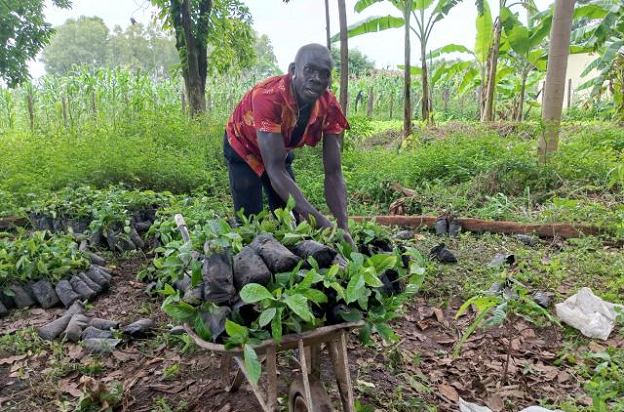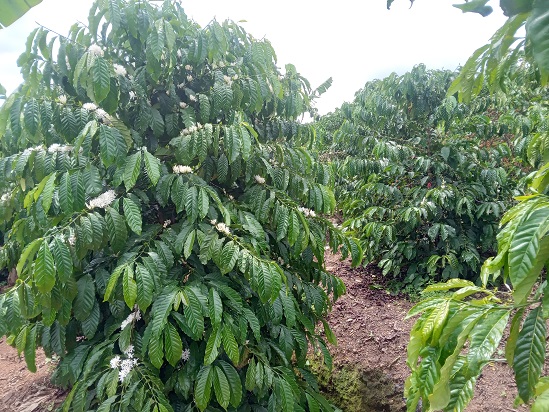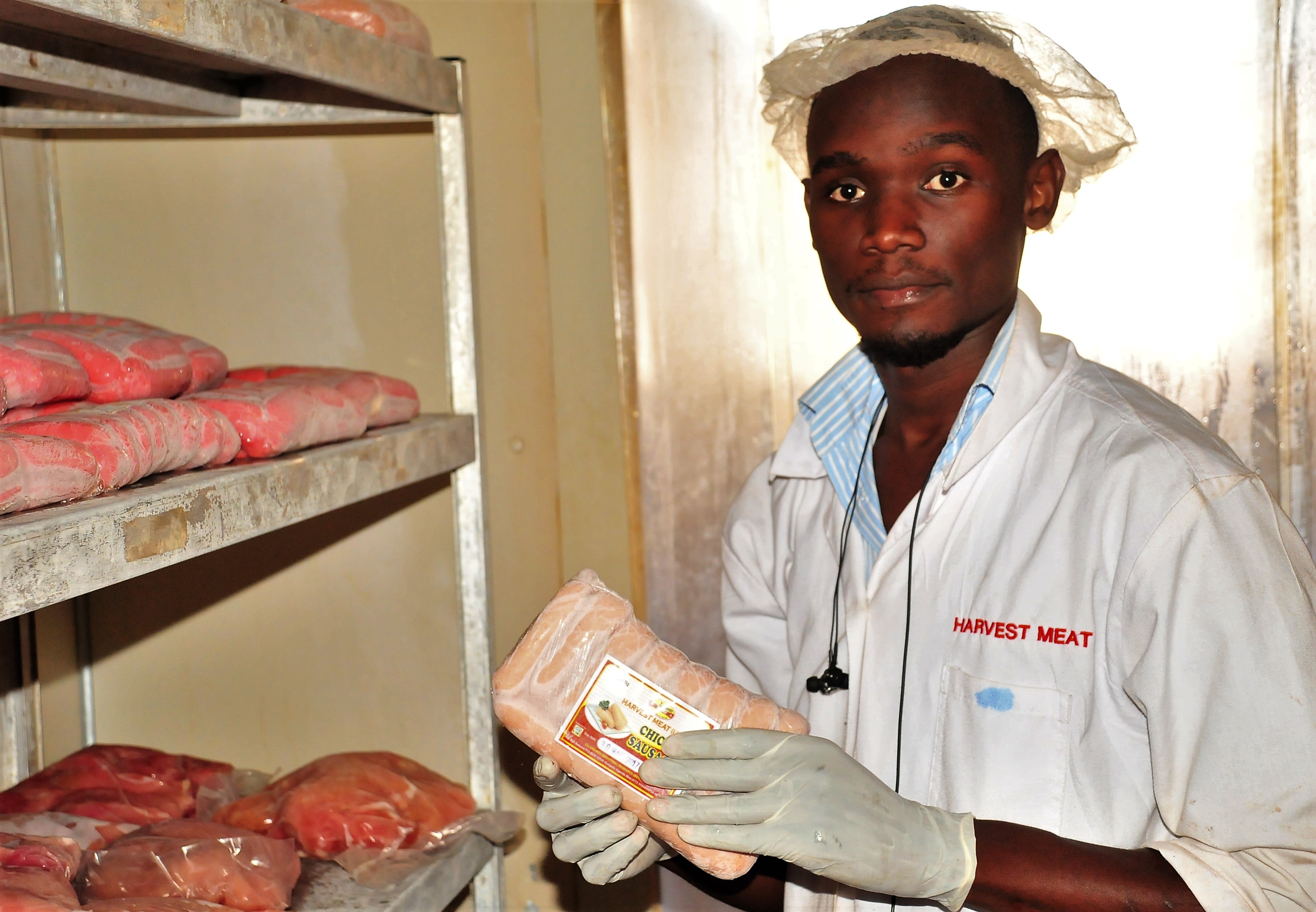A transporter carrying coffee seedlings from the distribution site at Gulu archdiocese
The Diocese of Northern Uganda has distributed 100,000 robusta coffee seedlings to congregants across five districts, with hopes of lifting Acholi communities into the money economy.
Walter Atiko, a senior economist and chairperson of the Diocese of Northern Uganda Coffee Cooperative Society, told our reporter on Wednesday that the seedling distribution is more than charity, but an economic game changer.
“We’re planting coffee to fight extreme poverty. This is not just agriculture; it’s an entry into the global money market,” Atiko said.
Through church-based communication and farmer training, the diocese has empowered smallholder farmers in districts such as Nwoya, Omoro, Gulu, and Amuru, as well as parts of Gulu City.
Each farmer receives between 250 and 500 seedlings, depending on the size of the land and the number of planting holes they have prepared, often one acre per household.
“We have verified the holes. We have videos from the villages in Nwoya, Awach, Palaro, and Bobi to prove farmers are ready,” Atiko added.
He credits the effort to the personal intervention of the bishop, who lobbied Operation Wealth Creation for seedling support. While the original request was for 475,000 seedlings, the diocese received 100,000 this year, with a commitment for more over the next two years.
The project is based on clonal robusta coffee, a disease-resistant variety suited to northern Uganda’s changing climate. Farmers have received on-site training on spacing, shading, and maintenance, along with support from a mother garden established by the diocese to guide demonstration plots.
“The seedlings were given at no cost to the farmers. This is a charitable mission, but with serious economic thinking behind it,” Atiko said.
The initiative echoes President Museveni’s call for Ugandans to join the money economy, a message Atiko says must now be translated into real economic activity.
“The president always says, ‘Be in the money economy.’ That means growing cash crops like coffee, cocoa, vanilla, onions, and keeping animals. These are income-generating activities that build wealth.”
The diocese plans to eventually add value to harvested coffee, creating local brands and building capacity for quality assurance and export, steps that could help northern Uganda tap into the global coffee market while generating local employment.
“When we process and package locally, we create jobs, pay taxes, and generate foreign exchange. This is the future of Acholi, private sector-led, but in partnership with government,” he added.
With over 200 farmers already supported, and a target of half a million seedlings over three years, the diocese is determined to keep the momentum. Atiko believes this kind of community-led economic revival is a blueprint for post-conflict recovery and long-term resilience.
“This project is not just about growing coffee. It’s about restoring dignity, building wealth, and showing that Acholi can rise, not with handouts, but through hands-on effort.”
Richard Odokonyero, a beneficiary of the coffee seedlings in Palaro sub-county in Gulu district, received 500 seedlings.
Odokonyero said he got the motivation to grow coffee from central Uganda, where he lived for many years. Although he first planted a few acres of coffee in the late 1990s, the plantation was abandoned because of the LRA war, and coffee died.
Odokoyero said he chose to grow coffee because it is less labour-intensive, has a ready market, even when the price fluctuates.
Odokonyero, who got 500 seedlings from the archdiocese, intends to plant up to ten acres in a few 10 acres on the argument that it will provide him with a stable source of income now up to his time of retirement.
Molly Atim, another beneficiary who received 400 seedlings. Atim, who already has two and a half acres planted more than a year ago in Gwengdiya parish, said the seedlings are now that seedlings are in high demand and expensive.
Atim was inspired by her father, who planted only a quarter of an acre of coffee and has been harvesting it for the past 17 years.
Rev. Godfrey Loum, the bishop of the diocese of northern Uganda, explained that the coffee seedlings are the diocese’s contribution to fighting poverty among the people of the community.
Rev Loum appealed to the farmers to embrace the growing of perennial crops, saying they are not susceptible to many challenges like seasonal crops.
Agricultural experts say northern Uganda has vast potential for coffee production, particularly in the highlands of districts like Nwoya, Amuru, and Lamwo.
-URN





